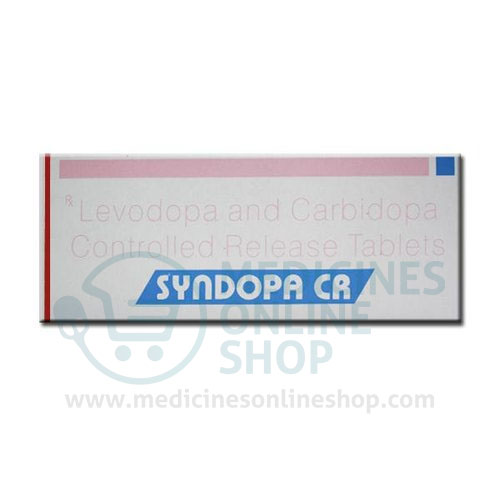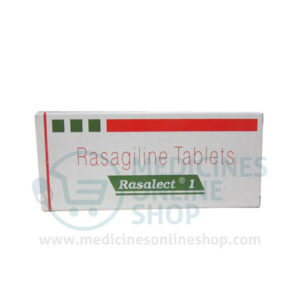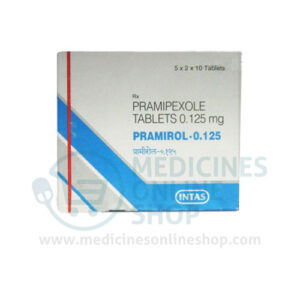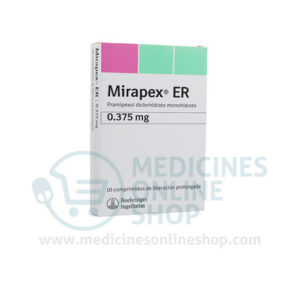Levodopa and Carbidopa Information
What is this drug used for?
• It is used to treat Parkinson’s disease.
• It is used to treat signs like Parkinson’s disease caused by other health problems.
• It may be given to you for other reasons. Talk with the doctor.
Possible side effects
Levodopa and Carbidopa may cause side effects. Tell your doctor if any of these symptoms are severe or do not go away:
All products:
• Bad dreams.
• Constipation.
• Dizziness.
• Feeling sleepy.
• Dry mouth.
• Headache.
• Trouble sleeping.
All oral products:
• Upset stomach or throwing up.
Enteral suspension:
• Throat pain.
Some side effects can be serious. If you experience any of these symptoms, call your doctor immediately or get emergency medical treatment:
All products:
• Signs of an allergic reaction, like rash; hives; itching; red, swollen, blistered, or peeling skin with or without fever; wheezing; tightness in the chest or throat; trouble breathing, swallowing, or talking; unusual hoarseness; or swelling of the mouth, face, lips, tongue, or throat.
• Signs of high or low blood pressure like very bad headache or dizziness, passing out, or change in eyesight.
• Signs of depression, suicidal thoughts, emotional ups and downs, abnormal thinking, anxiety, or lack of interest in life.
• Change in the way you act.
• Hallucinations (seeing or hearing things that are not there).
• Feeling confused.
• Strong urges that are hard to control (such as eating, gambling, sex, or spending money).
• A skin lump or growth.
• Change in color or size of a mole.
• Trouble controlling body movements that is new or worse.
• Throwing up blood or throw up that looks like coffee grounds.
• Black, tarry, or bloody stools.
• Stomach pain.
• Chest pain or pressure.
• Fast or abnormal heartbeat.
• Fever, chills, or sore throat; any unexplained bruising or bleeding; or feeling very tired or weak.
• Dark urine or yellow skin or eyes.
• Change in eyesight, eye pain, or very bad eye irritation.
• Shortness of breath.
Enteral suspension:
• A burning, numbness, or tingling feeling that is not normal.
• Problem with the device or problem where the tube goes into your body.
• Swelling in the arms or legs.
• Stomach or bowel problems can happen with this drug. Some of these problems may lead to the need for surgery or may be deadly. This includes problems like stomach or bowel bleeding, blockage, or ulcers; infection or other problems where the tube goes into your body; or pancreatitis. Call your doctor right away if you have dark, tarry, or bloody stools; fever; upset stomach or throwing up; constipation that does not go away; or stomach pain.
Medication Safety Issues
Sound-alike/look-alike issues:
Sinemet may be confused with Janumet, Serevent
International issues:
Zimox: Brand name for carbidopa and levodopa [Greece], but also the brand name for amoxicillin [Italy]
Zimox [Greece] may be confused with Diamox which is a brand name for acetazolamide [Canada and multiple international markets]
Storage and Stability
Oral formulations: Store at 25°C (77°F); excursions permitted between 15°C to 30°C (59°F to 86°F). Protect from light and moisture.
Intestinal suspension (Duopa): Store in freezer at -20°C (-4°F). Fully thaw in refrigerator at 2°C to 8°C (36°F to 46°F) prior to use; protect from light. To ensure controlled thawing, remove the cartons containing the seven individual cassettes from the transport box and separate the cartons from each other. Assign a 12-week, use-by date based on the time the cartons are put in the refrigerator to thaw (may take up to 96 hours to thaw). Once thawed, the individual cartons may be packed in a closer configuration within the refrigerator. Cassettes are for single use only and should be discarded daily following infusion (up to 16 hours). Do not re-use opened cassettes.
Intestinal gel (Duodopa [Canadian product]): Store in refrigerator at 2°C to 8°C (36°F to 46°F). Keep in outer carton to protect from light. Cassettes are for single use only and should be discarded daily following infusion (up to 16 hours).
Adverse Reactions
>10%:
Cardiovascular: Orthostatic hypotension (enteral suspension: 70% to 73%; oral: 1% to 5%)
Central nervous system: Dizziness (2% to 19%), headache (oral : 1% to 17%), depression (enteral suspension: 11%; oral: 1% to 2%)
Gastrointestinal: Nausea (enteral suspension: 30%; oral: 3% to 20%), constipation (enteral suspension: 22%; oral: ≤6%)
Neuromuscular & skeletal: Dyskinesia (2% to 17%), increased creatine phosphokinase (enteral suspension: ≤17%)
Renal: Increased blood urea nitrogen (enteral suspension: ≤13%)
1% to 10%:
Cardiovascular: Hypertension (enteral suspension: 8%), peripheral edema (enteral suspension: 8%), ischemia (oral: ≤2%), chest pain (oral: ≤1%)
Central nervous system: Insomnia (oral: 1% to 9%), anxiety (2% to 8%), confusion (2% to 8%), abnormal dreams (oral: ≤6%), polyneuropathy (enteral suspension: 5%), sleep disorder (enteral suspension: 5%), hallucination (≤5%), psychosis (≤5%), dystonia (oral: ≤2%), on-off phenomenon (oral: 1% to 2%), paresthesia (oral: ≤1%)
Dermatologic: Skin rash (enteral suspension: 5%)
Endocrine & metabolic: Increased serum glucose (≥1%)
Gastrointestinal: Xerostomia (oral: 1% to 7%), diarrhea (≤5%), dyspepsia (≤5%), vomiting (oral: 2% to 5%), anorexia (oral: 1%)
Genitourinary: Bacteriuria (enteral suspension: 5%; oral: ≥1%), urinary tract infection (oral: 2%), hematuria (oral: ≥1%), urinary frequency (oral: ≤1%)
Hematologic & oncologic: Leukocyturia (enteral suspension: 5%; oral: ≥1%), decreased hematocrit (oral: ≥1%), decreased hemoglobin (oral: ≥1%)
Neuromuscular & skeletal: Back pain (oral: ≤2%), muscle cramps (oral: ≤1%), shoulder pain (oral: ≤1%)
Respiratory: Atelectasis (enteral suspension: 8%), oropharyngeal pain (enteral suspension: 8%), upper respiratory tract infection (enteral suspension: 8%; oral: 1% to 2%), dyspnea (oral: ≤2%)
Miscellaneous: Fever (enteral suspension: 5%)
<1%, postmarketing, and/or case reports: Abdominal distress, abdominal pain, abnormal behavior, abnormal gait, abnormality in thinking, agitation, agranulocytosis, alopecia, anemia, angioedema, asthenia, ataxia, blepharospasm, blurred vision, bruxism, bullous rash (including pemphigus-like reactions), cardiac arrhythmia, common cold, cough, decreased mental acuity, decreased serum potassium, delirium, delusions, dementia, diaphoresis, diplopia, discoloration of saliva, discoloration of sweat, disorientation, drowsiness, duodenal ulcer, dysgeusia, dysphagia, edema, euphoria, extrapyramidal reaction, falling, fatigue, flatulence, flushing, gastrointestinal hemorrhage, glossopyrosis, glycosuria, heartburn, hemolytic anemia, Henoch-Schonlein purpura, hiccups, hoarseness, Horner syndrome (reactivation), hot flash, hypotension, impulse control disorder, increased lactate dehydrogenase, increased libido (including hypersexuality), increased serum alanine aminotransferase, increased serum alkaline phosphatase, increased serum aspartate transaminase, increased serum bilirubin, increased tremors, increased uric acid, leukopenia, lower extremity pain, malaise, malignant melanoma, memory impairment, muscle twitching, mydriasis, myocardial infarction, narcolepsy, nervousness, neuroleptic malignant syndrome, nightmares, numbness, oculogyric crisis, palpitations, paranoia, pathological gambling, peripheral neuropathy, phlebitis, positive direct Coombs test, priapism, proteinuria, pruritus, seizure, sense of stimulation, sialorrhea, suicidal ideation, suicidal tendencies, syncope, thrombocytopenia, trismus, urinary incontinence, urinary retention, urine discoloration, urticaria, weight gain, weight loss




